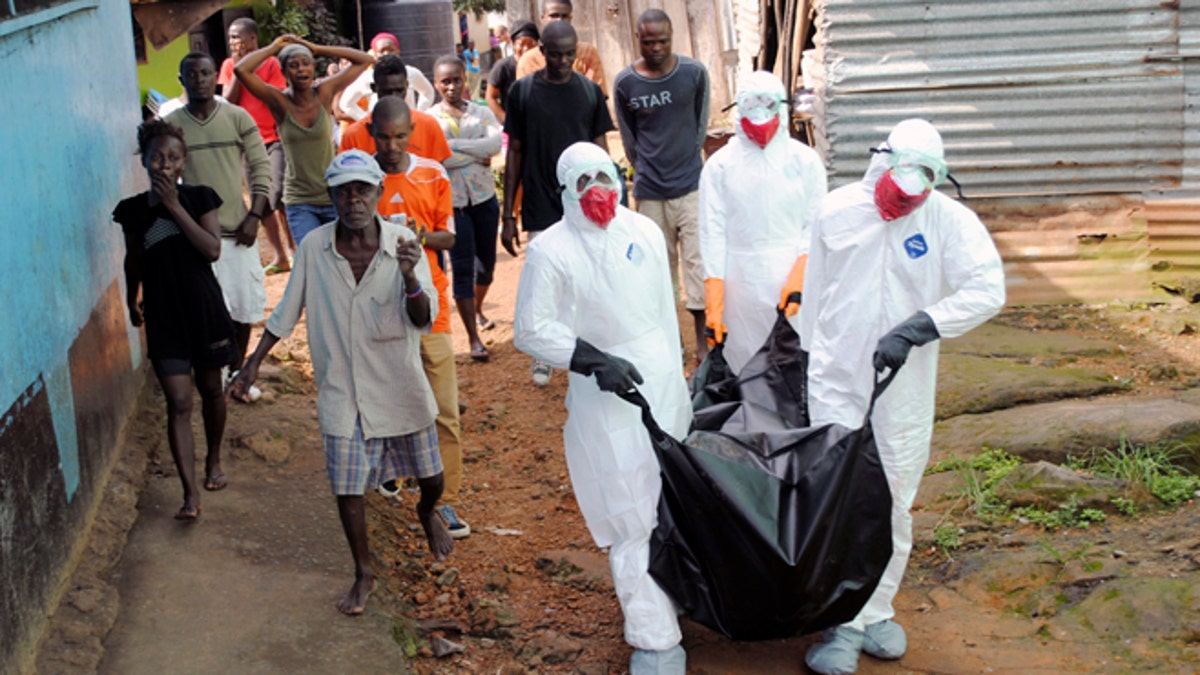
Health workers remove the body of Prince Nyentee, a 29-year-old man whom local residents said died of Ebola virus in Monrovia September 11, 2014. REUTERS/James Giahyue (LIBERIA - Tags: DISASTER HEALTH TPX IMAGES OF THE DAY) - RTR45VJ6
The exponential spread of the Ebola outbreak that has now killed almost 3,000 people in West Africa may have been checked in Guinea, the World Health Organization said on Thursday.
But a dire lack of beds and community resistance in some areas are helping the disease to continue spreading, while efforts to straighten out muddled data are gradually revealing an epidemic even more deadly than it had appeared.
The WHO said 2,917 people have died of Ebola out of 6,263 cases in the five West African countries affected by the disease as at the end of Sept 21.
Compared with the WHO's previous update, the latest data showed 99 more deaths in Liberia since Sept 17, but only four new deaths recorded in Sierra Leone since Sept 19 and only three new deaths in Guinea since Sept 20.
The proportion of cases that occurred in the past 21 days - the incubation period of the virus - has also fallen in all three countries, suggesting that the spread of the disease may be slowing.
"The upward epidemic trend continues in Sierra Leone and most probably also in Liberia," the WHO said. "However, the situation in Guinea, although still of grave concern, appears to have stabilized: between 75 and 100 new confirmed cases have been reported in each of the past five weeks."
The WHO said Liberia had 315 bed spaces for Ebola patients and aid agencies had promised to set up 440 more, but the country needed a further 1,550 beds that nobody had yet offered to provide. In Sierra Leone, 297 planned new beds would almost double existing capacity, but a further 532 were needed.
With too few beds and a huge shortage of expertise, the effort to tackle Ebola has switched to setting up care centers in communities and training locals, including 11,000 teachers in Liberia, to educate people about how to combat the disease.
In Sierra Leone, 75 percent of targeted households have been reached by "social mobilizers". But in some areas of Guinea, where an Ebola team was killed last week, there was still resistance to such efforts, the WHO said.
"For example, there are reports from Fassankoni, Guinea, that communities have set up roadblocks to screen entering response teams," it said.
The risk of infection among health workers is also much higher than previously thought. A recount has shown 81 have died in Sierra Leone out of 113 who caught the disease - a 72 percent death rate, instead of a 40 percent rate previously reported.
The WHO said its latest data did not yet include the cases and deaths found during a three-day lockdown in Sierra Leone.
